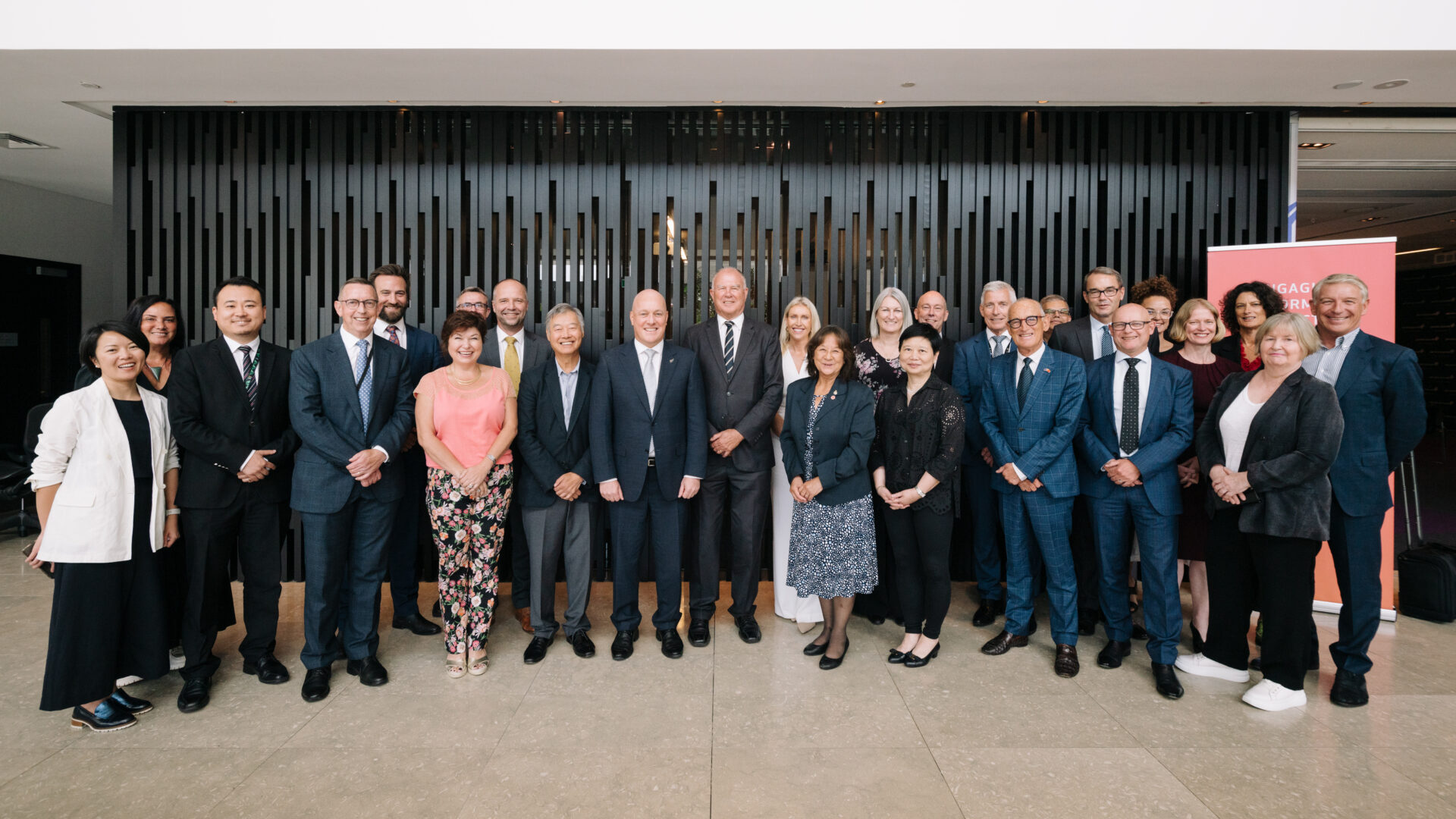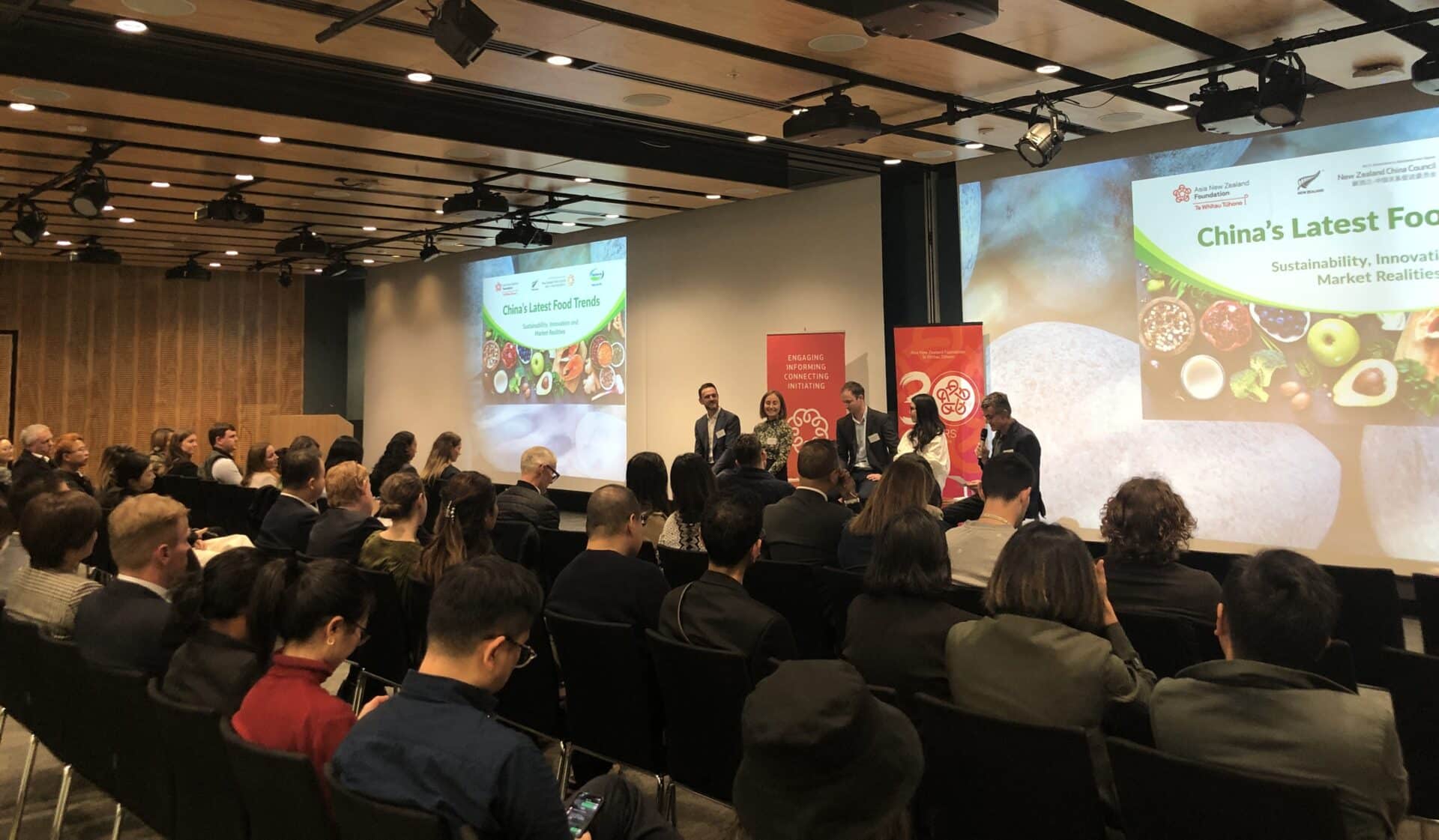NZ CHINA YOUNG LEADERS FORUM 2017
The New Zealand China Young Leaders Forum 2017 was held at the University of Auckland last week. The event is designed to inspire, engage and connect young leaders from New Zealand and China, and brought together representatives from a variety of community, government and youth organisations, business people and innovators.
New Zealand China Council Executive Director Stephen Jacobi spoke at the event about China’s Belt and Road Initiative, and the NZ China connectivity agenda. The full transcript of his speech is below:
BELT AND ROAD AND THE NZ-CHINA CONNECTIVITY AGENDA
It’s good to be with you today and my congratulations to the organisers of this important Young Leaders Forum. A warm welcome to New Zealand to our friends from China!
I bring you greetings from the Chairman of the NZ China Council, Rt Hon Sir Don McKinnon and I acknowledge Sam Brosnahan and Naisi Chen as members of the Council’s Advisory Board.
Earlier this month the Council hosted an event for a group of dynamic and well informed next generation leaders – I’m pleased to see a number of them here with us today.
We asked the group what was important for them about the relationship with China and what they wanted to see in the future and it’s great to see a number of their key interests figuring in today’s agenda.
This is also the ideal context to talk about “Belt and Road” because this ambitious vision is inevitably and inextricably part of the future of the relationship.
I’m grateful to Dr Jian Yang and Dr Stephen Knoakes for their comments and the background they’ve shared about Belt and Road.
I’d like to focus on how New Zealand can contribute to Belt and Road and what we need to be doing now to make this a reality.
An opportunity
For New Zealand BRI represents a great opportunity – an opportunity to demonstrate how New Zealand expertise and interests can add value and contribute to China’s vision.
It’s no secret that New Zealand’s relationship with China has developed rapidly in recent years to the stage of a Comprehensive Strategic Partnership.
This has been the result largely of the famous “firsts” in the relationship, including being the first developed economy to sign an FTA and now also the first developed economy to upgrade its FTA.
By any measure – trade, investment, tourism, education, scientific co-operation, people to people exchanges – the relationship continues to expand.
It is also true that New Zealand now faces greater competition for attention in China.
It’s not surprising – other countries with superior resources and deeper connections have lifted their game, even cautious Australia has negotiated a very good FTA.
It is the assessment of the NZ China Council that New Zealand cannot afford to stand aside from developing a contribution to Belt and Road but we need to do so carefully and in a way which matches our interests, our values and, especially, our comparative advantage.
Developing NZ’s contribution
The Memorandum of Arrangement signed between the two governments at the time of Premier Li Keqiang’s visit provides a mechanism for NZ firstly to define how it can contribute to BRI and secondly to present this under a framework for bilateral co-operation.
The MoA is largely aspirational but sets a timetable of 18 months for the development of this co-operation – we understand the official wheels are now in motion to put some greater flesh on the bones of how we might co-operate in the future.
We suspect the greater benefit for NZ is likely to be in the “soft infrastructure” rather than the “hard infrastructure” – the way goods, services, capital and people move along the belt and road rather than the road itself.
New Zealand has wide policy expertise and services to offer in this area which matches a number of the policy areas China has highlighted for Belt and Road including policy co-ordination, investment and trade facilitation, and cultural and social exchange.
Areas where New Zealand can contribute to BRI include trade facilitation, supply chain connectivity, innovation and co-operation in the creative sector.
A key task before us at this point is develop deeper thinking and more specifics about how we can assist and how this can be presented to the Chinese.
Making our offer more concrete
The NZ China Council has under a development a strategic pathway to help identify the opportunities.
With the help of the Government and a number of private sector funders, we have appointed PwC to prepare a background report.
The first draft of the report landed on my desk this week.
The report will be ready for release in coming weeks – following it release we will need to develop some further information materials and then initiate a process of public consultation about the areas we have identified.
I urge you to look for the release of the report and use it as a guide to developing your own thinking about how to be involved.
Conclusion
We have much work to do to make sure we in New Zealand are fully able to participate in this grand vision for connectivity.
Developing New Zealand’s economic relationship with China and other countries along the Belt and Road requires the sort of innovative new thinking that we collectively can bring to bear.
We certainly need the energy and vision of people in this audience to make it happen.












 MENU
MENU
